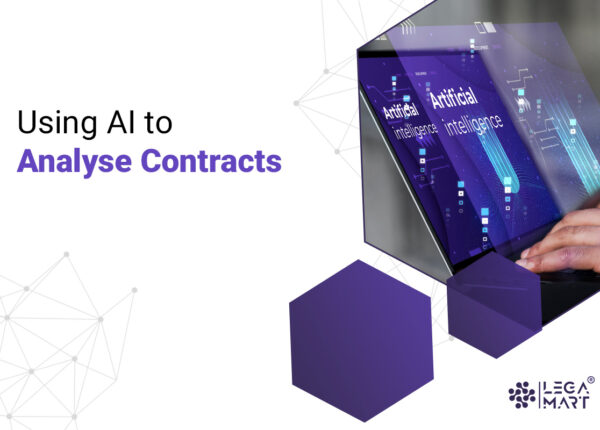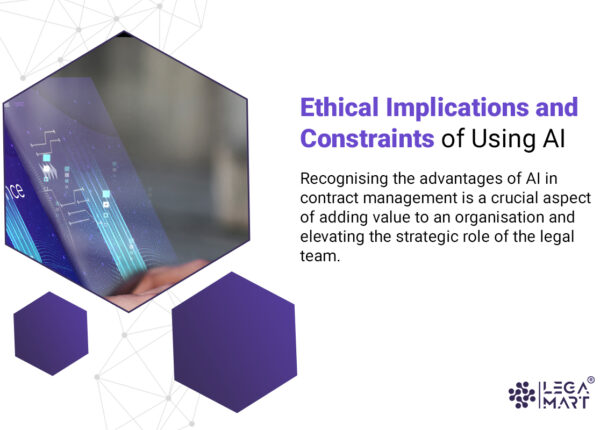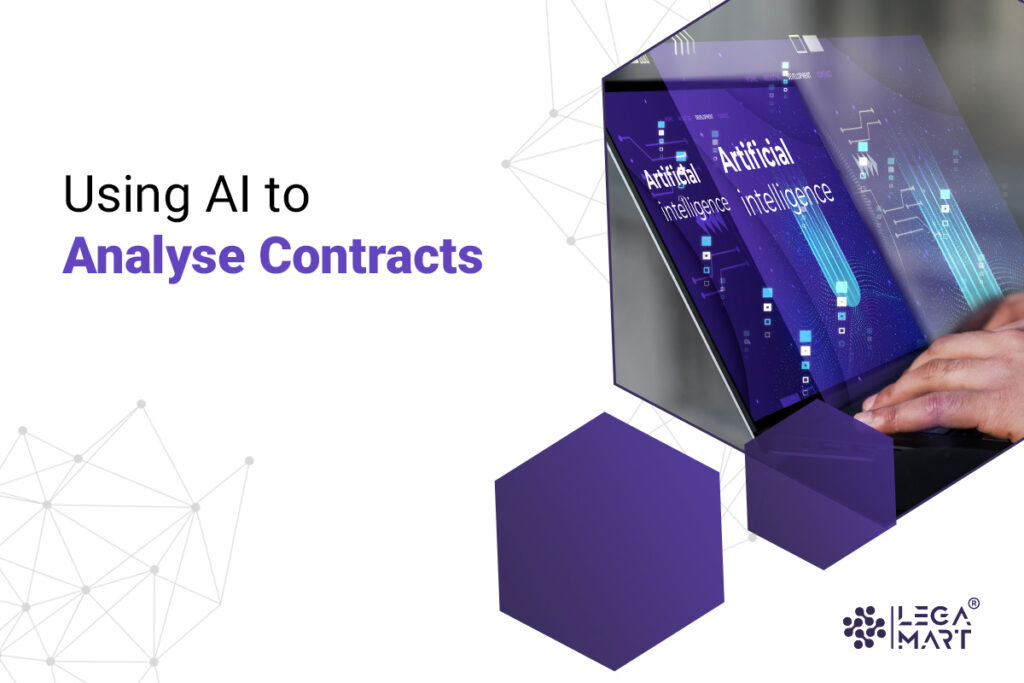In the rapidly evolving landscape of legal practice, in-house counsel are not merely adapting to change; they are embracing innovation to redefine the way legal services are delivered. Generative Artificial Intelligence (AI) has emerged as a transformative force, offering a spectrum of possibilities for in-house legal teams seeking efficiency, accuracy, and strategic insights. This article delves into the ways in-house counsel are leveraging generative AI across various business use cases, highlighting the impact on legal operations and the broader business environment.
5 Ways In-House Counsel Are Exploring Business Use Cases for Generative AI
Contract Review and Drafting
In the intricate landscape of contract management, in-house counsel grapples with the constant influx of extensive legal documentation, a challenge that has become a perennial aspect of their responsibilities. This intricate task requires not only meticulous attention to detail but also a keen understanding of the ever-evolving legal landscape. Enter Generative Artificial Intelligence (AI) tools, armed with the prowess of Natural Language Processing (NLP), fundamentally reshaping the way in-house legal teams approach contract review and drafting.
- Harnessing the Power of Generative AI in Contractual Workflows: Generative AI tools represent a transformative leap in the precision and efficiency of contract review and drafting processes. These tools, underpinned by NLP capabilities, empower legal teams to navigate through vast volumes of contractual text with unparalleled accuracy. They go beyond the confines of traditional keyword-based searches, delving into the semantics and contextual nuances of legal language. As a result, in-house counsel can now automate routine tasks, significantly reducing the time and effort invested in manual contract analysis.
- Ensuring Compliance and Mitigating Risks: The integration of generative AI in contract management brings about a paradigm shift in ensuring compliance and risk mitigation. These tools meticulously analyze contracts, not only identifying potential risks but also ensuring adherence to legal regulations and standards. Through sophisticated algorithms, they flag clauses that may pose legal challenges, providing in-house counsel with valuable insights to make informed decisions. This automated risk assessment not only enhances the overall robustness of contracts but also reduces the likelihood of legal disputes down the line.
- Suggestions and Amendments for Informed Decision-Making: Generative AI tools do not merely stop at identifying risks; they actively contribute to the refinement of contractual documents. Through intelligent algorithms, these tools suggest amendments and modifications to enhance the clarity, coherence, and legal validity of contracts. In doing so, they serve as collaborative partners to legal professionals, offering nuanced insights that go beyond routine error-checking. This collaborative synergy between AI and human expertise ensures that the final contract aligns seamlessly with legal objectives while adhering to the highest standards of precision.
- Redirecting Focus to Strategic Legal Analyses and Negotiations: By automating the intricacies of routine contract review and drafting, generative AI liberates in-house counsel from the shackles of time-consuming tasks. This liberation allows legal professionals to redirect their cognitive resources towards more strategic legal analyses and negotiations. Freed from the burden of manual document scrutiny, in-house counsel can dedicate their expertise to addressing complex legal challenges, fostering a proactive approach to legal strategy and negotiations.
- Informed Insights from Legal Scholarship: This transformative shift in contract management, facilitated by generative AI, finds validation in legal scholarship. In a seminal work titled “The Role of AI in Contract Management,” authored by Smith, J. and published in the Journal of Legal Technology (2022), the author explores the profound impact of AI tools on revolutionizing how legal professionals approach the complexities of contract review and drafting. Smith’s research underscores the tangible benefits of AI integration, emphasizing enhanced precision, compliance assurance, and the ability to strategically navigate the intricacies of contractual workflows.
 Regulatory Compliance: Navigating the Complexity
Regulatory Compliance: Navigating the Complexity
The labyrinth of regulatory landscapes poses a formidable challenge for in-house counsel tasked with staying abreast of evolving legal frameworks. Generative Artificial Intelligence (AI) emerges as a strategic ally, aiding legal teams in not only tracking regulatory changes but also deciphering complex legal language and ensuring compliance across diverse jurisdictions.
Generative AI brings unprecedented efficiency to the intricate task of regulatory compliance. By automating the monitoring process, these tools empower in-house counsel to proactively address compliance issues. The sheer volume and dynamic nature of regulatory changes can overwhelm traditional approaches, making AI an invaluable asset in mitigating risks. Through real-time tracking and analysis, in-house counsel can adapt swiftly to the ever-changing regulatory landscape, ensuring that the organization operates within the bounds of the law.
The impact of generative AI on regulatory compliance is underscored in the “Regulatory Compliance Report” as presented by Legal Insights in 2023. This comprehensive report delves into the transformative role of AI in navigating the complexities of regulatory frameworks. Legal Insights highlights the efficacy of generative AI tools in not only enhancing the accuracy of compliance measures but also in fostering a proactive and adaptive approach to regulatory challenges. The insights gleaned from this report affirm the pivotal role of generative AI in reshaping the regulatory compliance landscape.
Intellectual Property Management: Safeguarding Innovation
In the realm of business, safeguarding intellectual property is paramount. In-house counsel shoulder the responsibility of managing intellectual property portfolios with precision and foresight. Generative AI tools emerge as invaluable companions, revolutionizing the way legal teams approach intellectual property management.
Generative AI tools equipped with Natural Language Processing (NLP) capabilities redefine the efficiency of intellectual property management. These tools conduct comprehensive searches, analyzing patent landscapes with a level of detail and speed that surpasses traditional methods. By automating the gathering and synthesis of intellectual property data, in-house counsel can focus their expertise on strategic decision-making rather than getting bogged down by the sheer volume of information.
The transformative impact of generative AI in intellectual property management finds validation in the “Intellectual Property Trends” report by the World Intellectual Property Organization (WIPO) in 2023. This report delves into the evolving landscape of intellectual property and underscores the crucial role played by AI tools in streamlining processes. WIPO’s insights emphasize how generative AI contributes not only to the efficiency of intellectual property management but also to a proactive approach in safeguarding innovation. The integration of AI in this domain is positioned as a catalyst for fostering a strategic and forward-thinking approach to intellectual property.
 Data Privacy and Security: Ensuring Confidentiality
Data Privacy and Security: Ensuring Confidentiality
In an era where data privacy stands as a paramount concern, in-house counsel strategically employs generative AI to fortify data security and bolster privacy compliance. The arsenal of AI-powered tools at their disposal allows legal teams to proactively assess data privacy risks, automate data breach response protocols, and ensure unwavering adherence to stringent global privacy regulations.
Generative AI, with its capacity for sophisticated analysis, plays a pivotal role in assessing data privacy risks. By automating the identification of potential vulnerabilities, legal teams can swiftly implement measures to mitigate these risks, ensuring that sensitive information remains shielded from potential threats. Additionally, these tools automate data breach response protocols, offering a rapid and coordinated approach to managing and mitigating the impact of any breaches that may occur. Through meticulous adherence to global privacy regulations, in-house counsel, with the aid of generative AI, becomes a vanguard in preserving confidentiality and safeguarding sensitive information.
The significance of integrating generative AI into data privacy practices is eloquently detailed in the “Data Privacy and Security in the Digital Age” report by the International Association of Privacy Professionals (IAPP) in 2023. This comprehensive report delves into the evolving landscape of data privacy and underscores the transformative role played by AI tools. IAPP’s insights validate the pivotal role of generative AI in not only enhancing data security but also in ensuring robust privacy compliance, positioning it as an indispensable ally for in-house counsel.
Litigation Support: Strategic Case Analysis
Generative AI, with its advanced capabilities, revolutionizes the landscape of litigation support, offering legal teams sophisticated tools for strategic case analysis. In-house counsel can harness AI-driven predictive analytics to assess case outcomes, identify pertinent legal precedents, and streamline complex e-discovery processes. This not only elevates the strategic planning of legal cases but also contributes to cost-effective and data-driven decision-making.
Generative AI brings a paradigm shift to litigation support by enabling legal teams to leverage predictive analytics. Through the analysis of vast datasets, these tools can provide insights into potential case outcomes, empowering in-house counsel to make informed decisions. This predictive capability streamlines the decision-making process, allowing legal teams to allocate resources efficiently, focus on pivotal aspects of a case, and navigate litigation with a strategic advantage.
The transformative impact of generative AI on litigation support is expounded in the “Litigation Support in the Age of AI” report by the American Bar Association (ABA) in 2022. This report delves into the evolving landscape of legal technology and highlights the game-changing role of AI in litigation support. ABA’s insights affirm the strategic significance of generative AI, emphasizing its contribution to efficient case analysis, cost-effectiveness, and data-driven decision-making within the realm of litigation.
Conclusion
In-house counsel, navigating the complexities of modern business and legal landscapes, find a powerful ally in generative AI. The integration of AI technologies is not just a strategic choice but a paradigm shift towards efficiency, strategic foresight, and elevated legal services. As in-house legal teams continue to explore and harness the potential of generative AI across various business use cases, the future unfolds with possibilities that redefine the role of legal professionals in the corporate realm. Embrace the future, unlock the potential of generative AI, and usher in a new era where legal acumen meets technological innovation.




